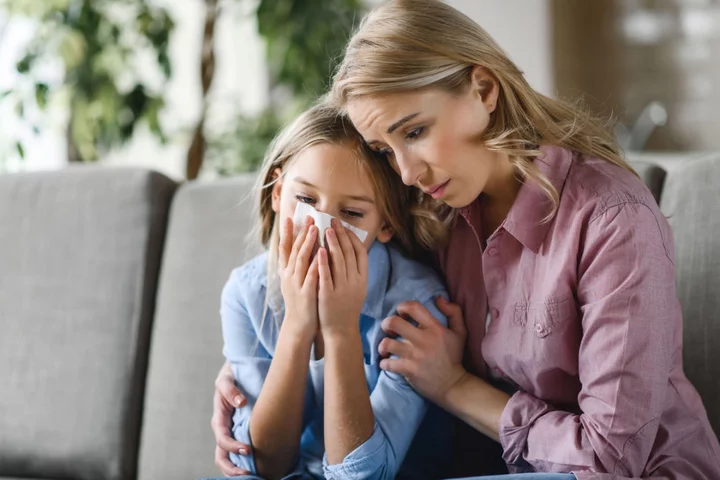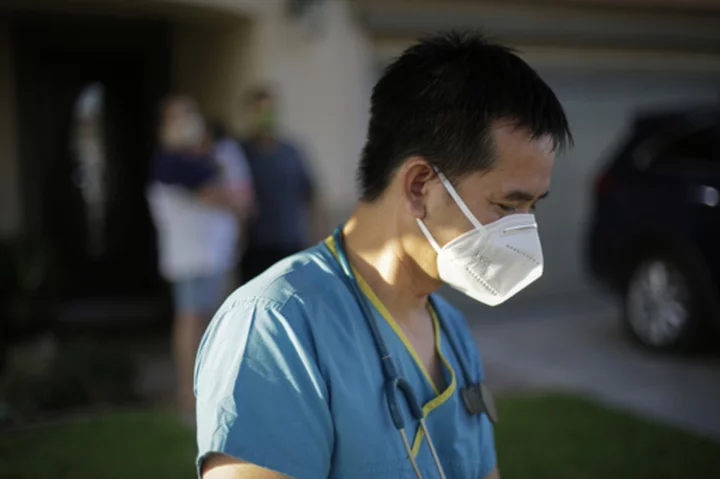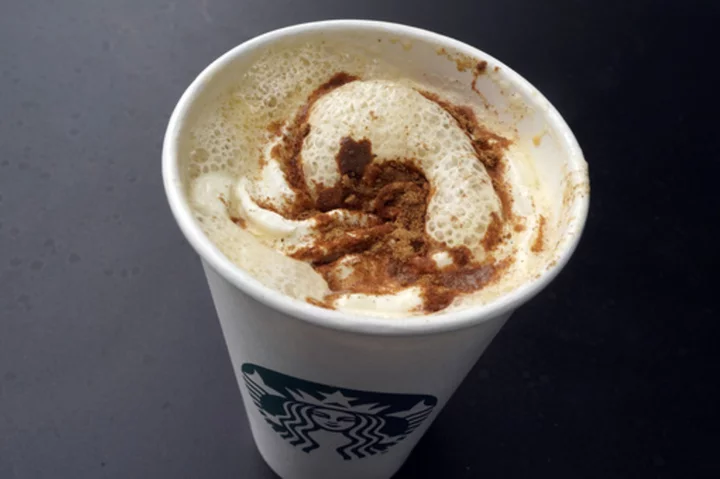
Lebanon's interim central bank chief vows not to lend money to government
Lebanon’s interim central bank governor has called on the country’s ruling class to quickly implement economic and financial reforms that the central bank won’t offer loans to the state and does not plan on printing money to cover the huge budget deficit to avoid worsening inflation
1970-01-01 08:00

How to protect your kids and yourself from back-to-school colds
While your child may be excited about returning to school this September, there’s also a little anxiety about the one thing that can put a spanner in the works: a cold. As Dr Dave Nichols, of MyHealthChecked, an at-home wellness testing company, puts it: “The return to school following the summer holidays often coincides with a rise in a number of respiratory illnesses, including the common cold.” Common symptoms include a cough, sore throat, nasal irritation, nasal discharge (rhinorrhoea), a fever or generalised malaise, explains Nichols. “While the common cold can affect all population groups, the National Institute for Health and Care Excellence report this to be far higher amongst children, who experience an average of five to eight colds per year.” Nichols continues: “Adults who have regular contact with children are also seen to have colds more frequently.” He says children are especially important in the transmission, acting as reservoirs for the infection as they have fewer antibodies and a more immature immune system, making them more susceptible to the common cold. “Direct contact with the skin or hand contact with an infected object are key ways the virus is transmitted,” notes Nichols. “Which explains why numbers seen amongst children are higher, as they are more likely to have close contact with each other in nursery and school.” While there is no cure for the common cold, he says prevention remains crucial in order to protect ourselves from illness. Here are some top tips to reduce the chances of catching a cold… Adopt good hygiene measures Basic good hygiene measures are an important way of reducing the transmission of viruses, says Nichols. Wash hands frequently with warm soap and water if you (or the kids) have symptoms, or have come into close contact with someone who has symptoms. He says to avoid sharing items within households, such as towels, can also help. Get into a physical exercise routine Ensuring regular physical exercise is important because it has been shown to reduce the chances of people developing viral illnesses such as the common cold, advises Nichols. “Exercise plays an important role in boosting immunity by increasing the circulation of some important immune cells, which fight against infection,” says Nichols. “It also plays a key role in helping to reduce stress and the release of stress-related hormones within the body, which has an important impact.” Eat healthy foods to maximise your wellbeing “Eating well will help support a good functioning immune system,” says Dr Emeka Okorocha, medical doctor and TV personality. “The body needs a range of nutrients and vitamins to stay strong and healthy, and prevent the development of disease.” He highlights the following vitamins… “Vitamin A, which is converted from beta carotene found in vegetables such as sweet potatoes and beetroots, is very good for helping support the mucosal lining in your nose and lungs – and helps defend against infection. “Vitamin C has always been considered a good preventative vitamin from catching colds, this can be found naturally in fruits like strawberries, blueberries, blackberries and raspberries – and in leafy vegetables like spinach as well as broccoli, peppers and peas. “Vitamin D that many of us get from natural sunlight is also ideal for overall health – and studies have shown that people lacking in vitamin D are more likely to succumb to infection.” In winter months, when there are lower levels of natural sunlight, he says you can obtain vitamin D from foods such as salmon, mackerel, eggs, and mushrooms. Berries are very beneficial Okorocha continues: “I love fresh berries – strawberries, raspberries and blueberries, for example, are high in antioxidants and contain lots of vitamin C, which helps our bodies to produce antibodies that keep us from getting sick. “Berries are also high in flavonoids which help protect cells in our immune system by promoting activation and secretory processes within cells.” He says studies have indicated that regularly eating fruits such as blueberries may decrease your likelihood of catching a cold. Get adequate rest and sleep Ensuring you’re getting adequate amounts of rest and sleep is crucial in helping to reduce your risk of becoming unwell, urges Nichols. “A healthy adult needs between seven to nine hours of sleep per night, with children requiring longer,” says Nichols. “Sleep quality has been shown to be an important predictor of immunity, with those regularly sleeping under the recommended amounts more likely to develop a cold. “Improving your sleeping pattern is therefore an important way to reduce the chances of becoming unwell.” Read More Former royal chef explains why Prince William and Kate’s children don’t eat with them ‘You think it’s going to be a money making machine’: How modern life killed the hobby People defend bride after father-in-law explains why he left wedding early 4 hacks to get teens off the sofa and get active – as study warns of heart damage Elle King opens up about her ‘deep depression’ amid two-year postpartum journey BBC Radio 2’s Tony Blackburn reveals he had sepsis and pneumonia in health update
1970-01-01 08:00

Stock market today: Asian shares mostly decline ahead of Federal Reserve’s Powell speech
Asian shares are mostly falling, discouraged by a Wall Street slump that followed a blowout profit report from Nvidia and mixed reports on the U.S. economy
1970-01-01 08:00

Europe is cracking down on Big Tech. This is what will change when you sign on
Starting Friday, Europeans will see their online life change
1970-01-01 08:00

California doctor lauded for COVID testing work pleads guilty to selling misbranded cosmetic drugs
A celebrated doctor who tested tens of thousands of people for COVID-19 in the pandemic’s early months in a badly-stricken California desert community has pleaded guilty to misbranding cosmetic drugs
1970-01-01 08:00

Railroads resist joining safety hotline because they want to be able to discipline workers
The major freight railroads say a disagreement over whether they will be allowed to discipline some workers who use a government hotline to report safety concerns has kept them from following through on the promise they made back in March to join the program after a fiery Ohio derailment prompted calls for reforms
1970-01-01 08:00

Judge OKs updated Great Lakes fishing agreement between native tribes, state and federal agencies
A federal judge has approved an updated Great Lakes fishing agreement between four Native American tribes and government agencies
1970-01-01 08:00

In court documents, JetBlue says it could raise fares on some routes after buying Spirit Airlines
JetBlue says in court filings that it could raise fares on some routes by up to 40% if it succeeds in buying Spirit Airlines
1970-01-01 08:00

General Motors to close information technology center near Phoenix and eliminate 940 jobs
General Motors says it will close a large computer center near Phoenix at the end of October, eliminating 940 jobs
1970-01-01 08:00

Nigeria's unemployment rate falls to 4.1%, using new methodology. Analysts say it’s an undercount
Nigeria's statistics agency says the unemployment rate now stands at 4.1%
1970-01-01 08:00

Starbucks' Pumpkin Spice Latte turns 20, whether you like it or not
The seasonal drink that made pumpkin spice a star is marking two decades in the world
1970-01-01 08:00

Boeing and a key supplier find a new manufacturing issue that affects the 737 Max airliner
Boeing and a key supplier say that a new manufacturing flaw could delay deliveries of the 737 Max, Boeing’s best-selling plane
1970-01-01 08:00
